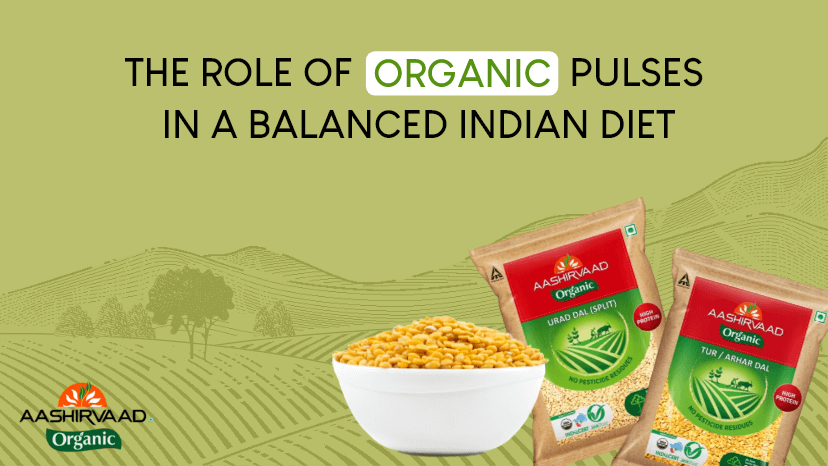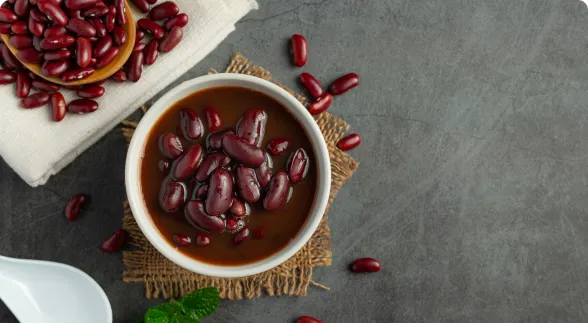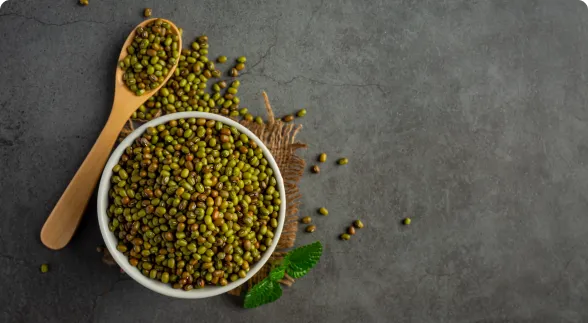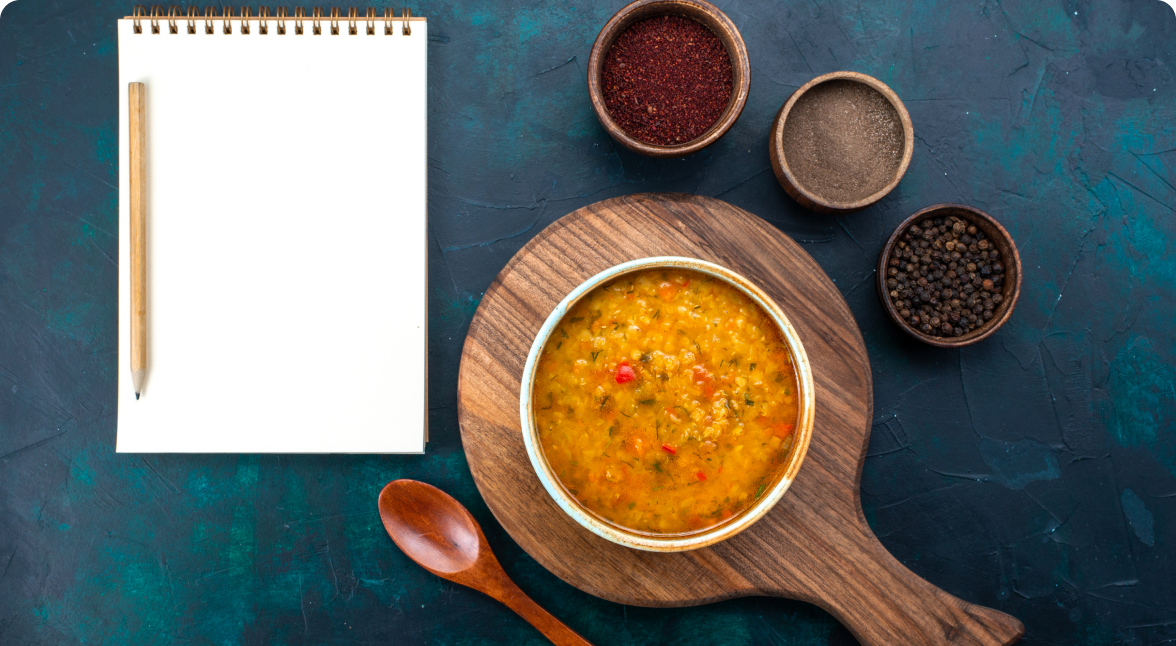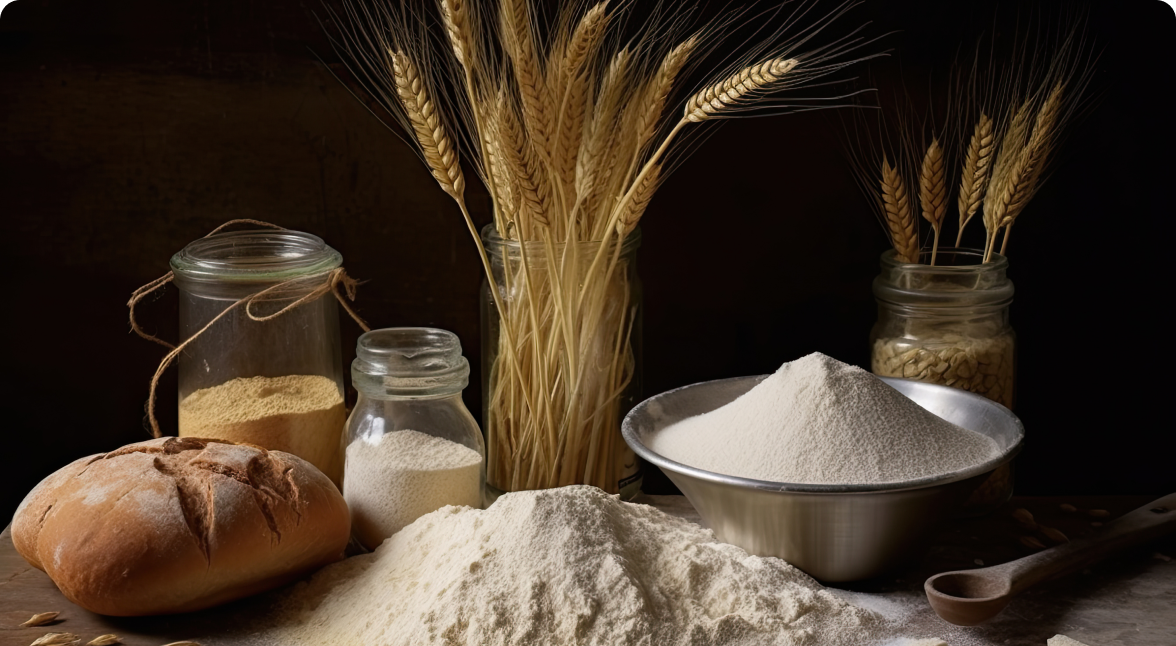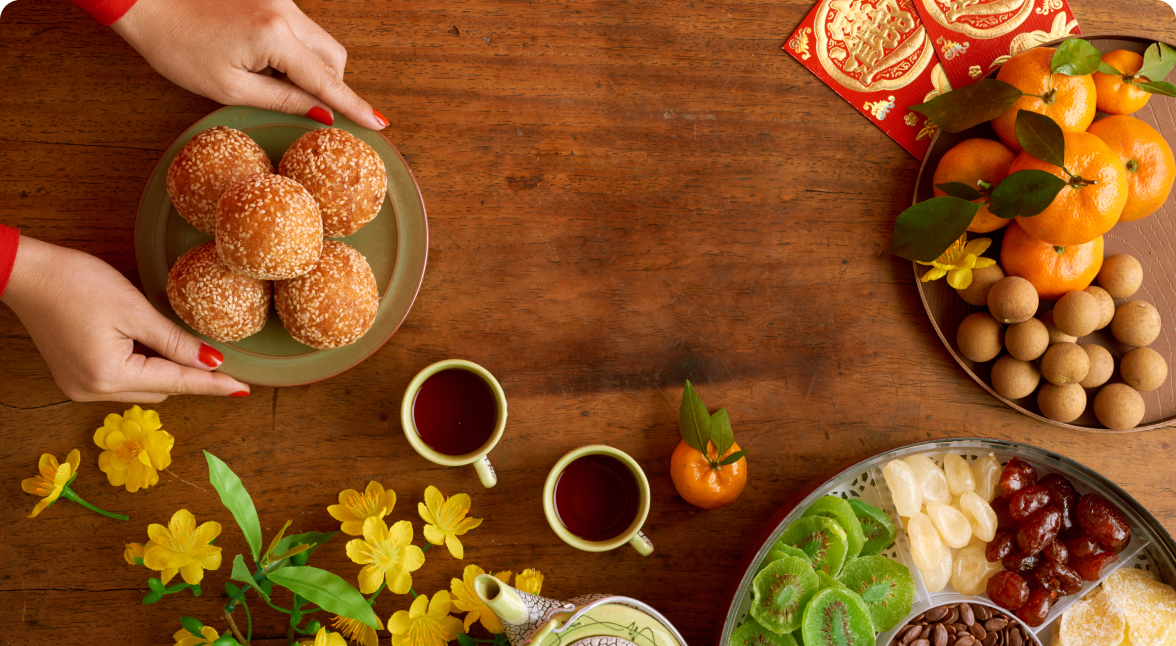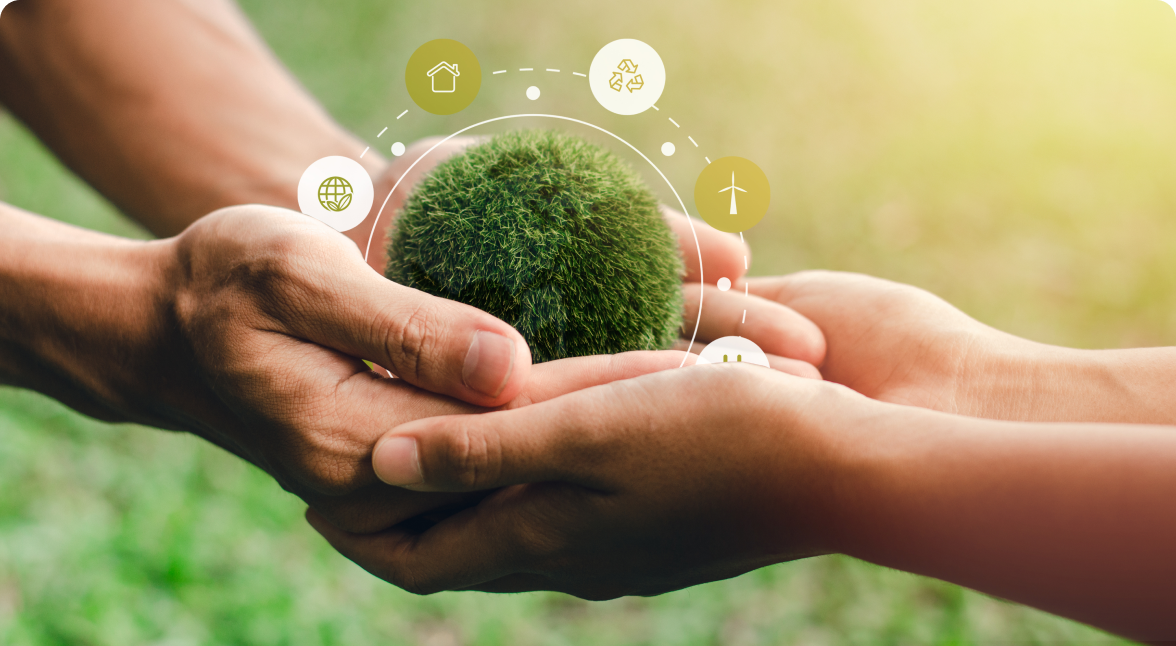It seems impossible to imagine a meal without the comforting presence of dal, doesn’t it? However, taking on the organic revolution rather than only possessing pulses will truly transform the game.
Vibrating against the buzz of modern food trends is our forefathers’ ancient knowledge of purchasing unpolished pulses. Ever ponder the mystery surrounding the demand for less shine?
Let me reveal the organic pulses, the secret treasure. Including organic pulses in your diet can do wonders for your health and wellness. They are an affordable source of fibre and protein and a wealth of vital elements that promote general health and weight loss.
You will learn how these potent legumes can change your eating habits and improve your health from this article, which presents strong arguments for why organic pulses should be a mainstay in your diet. So, read on and bring home 100% organic pulses and legumes from Aashirvaad Organic as a nutritious and delicious diet option. After all, to lead a healthy lifestyle, driving back to nature has become an international mania.
1. What do Organic Pulses Mean?
Organic pulses refer to leguminous crops like lentils, chickpeas, beans, and peas that are grown using organic farming practices. Farmers practicing organic farming avoid artificial fertilisers, pesticides, and genetically engineered organisms. Instead, they depend on organic techniques such as crop rotation, composting, and biological pest management to improve the soil and safeguard the crops [1].
Additionally, the word “organic” suggests that these pulses aren’t put through any artificial polishing procedures. Organic pulses keep their outer layer rich in fibre and essential nutrients, unlike polished pulses. They have a distinctive aspect of being less shiny than their polished counterparts, which is partly due to their natural and unpolished state.
2. The following are some elements that influence how pure organic pulses are [2]:
- Synthetic pesticides: Organic farming avoids the use of synthetic pesticides and instead relies on natural pest management techniques, including companion planting, crop rotation, and biological pest control.
- Chemical Fertilisers: Using organic fertilisers such as manure, compost, and cover crops can enhance the soil and supply vital nutrients to plants. The organic pulses are grown without the use of chemical fertilisers.
- Genetic Modification: Farmers cultivate organic pulses without genetically modified DNA or traits using traditional breeding methods. They are not genetically engineered in any way.
- Contaminants: To meet the requirements for organic certification, strict adherence to laws governing soil health, water purity, and processing methods is necessary. This reduces the chance of contamination by infections, heavy metals, and other dangerous materials.
- Certifications: To guarantee the integrity and purity of organic pulses, certification programs for organic products impose strict requirements. These specifications include documentation, traceability, and inspections to ensure that organic farming practices adhere from seed to shelf. You can be sure that certified organic pulses are pure and follow organic guidelines when you choose them.
Check out our insightful article, “The Role of Organic Farming in Sustainable Agriculture: Impact on the Environment,” to learn more about the fascinating world of organic farming and how it affects sustainable agriculture. Find out how this environmentally beneficial method changes agriculture and how it will benefit the environment and our future.
3. Different Types of Organic Pulses
As the husk peels off at the following stage, the pulses we eat today are stripped of protein and other essential nutrients. But at the same time, organic pulses contain all the crucial elements in their whole. The husk of organic dal is left on and is sold with its fibrous component in its realistic constitution. Let’s examine some nutritious pulses that you can include in your regular diet:
- Organic Moong Dal.
- Organic Arhar/Toor Dal.
- Organic Green Dry Peas.
- Organic Chana Dal.
- Organic Soybean Whole.
- Organic Panchrangi Dal.
- Organic Peanuts.
- Organic Chana Whole.
- Organic Rajma.
- Organic Moong Whole.
- Organic Green Moong Split.
- Organic Roasted Chana Dal.
- Organic White Peas.
- Organic White Urad Dal.
- Organic Kabuli Chana.
The list goes on, but what is more crucial here is to find a genuine food brand that sells organic food items and not adulterated and impure ones to their customers.
Savour the natural goodness of Aashirvaad Organic Pulses—your ticket to a more appetising and healthful way of life! Our organic pulses, which come from nature’s abundance, symbolize excellence and sustainability. Aashirvaad Organic Pulses’ rich flavours and nutritious advantages will enhance your meals.
Because when it’s organic, it’s not just food – it’s a blessing for your well-being.

4. The Role of Organic Pulses in a Balanced Indian Diet
You can consider your meal balanced and complete when it includes an appropriate amount of organic pulses. There are numerous reasons, not just one, to stock the cupboard with organic foods:
a. Organic Pulses Keep your Heart Healthy and Happy
Proteins and lipids found in organic pulses help to maintain a healthy heart. Magnesium is another ingredient in the pulses that helps to normalise blood pressure by relaxing the heart muscles [3].
Also, organic pulses are naturally low in saturated fats, crucial in maintaining heart health. You have sufficient reasons to switch to organic pulses and enjoy a risk-free, healthy lifestyle. So, go ahead and indulge guilt-free!
b. Organic Pulses Provide a Good Source of Protein
Organic pulses are an exemplary source of protein and fibre. You can achieve great things in your diet by incorporating even half a cup of organic beans or legumes with cereals and other vegetables [4].
Fact: Pulses contain about 21-25% protein. They contain almost double the protein content of cereals.
c. Organic Pulses Offer Fibre for Digestive Harmony
Rich in dietary fibre, organic pulses help to keep the digestive tract in good condition. Their fibre level adds to the overall digestive harmony, an essential component of a balanced diet, by reducing constipation and encouraging feelings of fullness [5].
Making a healthy meal plan could be challenging for you, and you might constantly search for new ways to get more fibre in your diet. But wonder who to counsel and how to approach it. The plan for your path towards a balanced diet is just a click away, thanks to Aashirvaad Atta with Multigrains and a group of knowledgeable nutritionists. The My Meal Plan test calculates your daily fibre consumption and generates a comprehensive meal plan that meets the recommended intake. All you have to do is click the link and benefit from it.
d. Organic Pulses Help to Control Diabetes
The light glycemic index of organic pulses affects blood sugar levels. A meal with a low glycemic index will only cause a small amount of blood sugar drift, reducing the risk of developing diabetes [6].
If you have diabetes, including pulses in your diet daily will help you manage your condition by slowing the breakdown of carbohydrate into glucose in the blood;therefore providing consistent energy. You can also add Aashirvaad Swasti Cow Ghee in your diet for the added benefits. AASHIRVAAD Svasti Ghee is made with a special ‘SloCook’ process. In this process, the ghee is prepared by cooking slowly for about three and a half hours over gradually increased temperatures, which enhances its natural aroma.
e. Organic Pulses Ideal for Maintaining A Healthy Weight
Weight Watchers, rejoice! Due to its low-calorie and nutrient-rich makeup, organic pulses are a perfect addition to a diet to help people lose weight. You may lose those excess pounds while enjoying a tasty and guilt-free meal with the help of this healthy treat.
Organic pulses are a rich source of dietary fibre supplements, making you feel fuller for longer and reducing the calories you consume. Additionally, eating organic dal speeds up your metabolism and helps you lose body fat. It enables you to manage your weight since it contains substantial proteins, vitamins, and minerals. This way, you can maintain a healthy weight by consuming organic pulses.
Organic pulses also contain a lot of protein, which is vital for weight loss and maintenance. Protein helps preserve muscle mass during weight loss, ensuring you lose fat rather than precious muscle tissue. Additionally, the essential minerals magnesium and potassium included in organic pulses assist metabolism and maintain the equilibrium of minerals in the body, which helps with overall weight management.
At Aashirvaad Organic, our goal is to foster openness and trust. The choice of Sach Much Organic products from Aashirvaad, a thorough 3-step cleaning process, and a rigorous testing regimen such as the 217 Tests for Pesticide-Free Produce significantly reduces exposure to chemicals. Are you curious to experience the process yourself? Simply click the Aashirvaad’s Sach Much Organic link to learn more about Sach Much Organic products.
5. How to Find Real Organic Pulses in the Organic Aisle: A Buyer’s Guide
The organic department of your neighbourhood grocery shop charms with promises of healthful deliciousness. However, how can you be certain that the bag of organic pulses you select is authentic? This is your go-to resource for determining whether an item is truly organic and for getting the most out of your organic purchasing experience.
#1 Crack the Code for Understanding Organic Labels
Consider reading the label carefully before grabbing that bag of organic pulses. To ensure adherence to organic farming standards, look for these important certificates from the Agricultural and Processed Food Products Export Development Authority (APEDA).
Authentic organic products frequently exhibit with pride the fact that they are free of chemical fertilisers, synthetic pesticides, and genetic engineering. For a better understanding, read the fine print.
#2 Sourcing Matters: Know Your Farmer, Know Your Pulse
Think about purchasing from neighbourhood farmers’ markets or trustworthy organic firms. Examine the company’s stance on sustainability and organic farming methods. Knowing where your pulses come from adds an extra layer of assurance.
Look no further than Aashirvaad Organic if you want to enhance your organic food experience. It all comes down to eating simple, delicious food that is friendly to the environment and healthy for you. We carefully grow our ingredients without any harmful stuff. That translates to a happy Earth and better food for you. Savour the bounty of the natural world with Aashirvaad Organic!
6. Ways to Incorporate Organic Pulses into Your Diet
Adding organic pulses to your diet is simple, even if you are unfamiliar with the idea. These pulses are a simple addition to a dal dish or soup. You can use pulses to make crispy cakes or filling pancakes.
To make a delicious salad, boil these pulses and add your preferred vegetables and seasonings. You can enjoy many options with pulses, such as moong dal halwa, muffins, and more if you’re drawn to nutritious sweets. Here are some recipes that you can try:
a. Organic Urad Whole Curry
Prepare yourself for a delicious experience with Urad Whole! Soak the beans for a while till they get puffy. Combine onions, tomatoes, and garlic in a pot with aromatic spices like coriander and cumin. Incorporate the soaked urad whole, allowing it to absorb all those delicious flavours.
Allow everything to simmer until you achieve a flavorful curry. This filling dish goes well with naan or rice. Try this quick and easy recipe with Aashirvaad Organic Urad Whole for a tasty dinner that will add authentic flavours to your table!
b. Organic Tur/Arhar Dal
Use this simple recipe to savour the simplicity and heartiness of Tur/Arhar Dal. First, rinse one cup of Tur/Arhar Dal under cold water. Add the dal, 3 cups water, a sprinkling of turmeric, and a teaspoon of salt to a pot. After bringing it to a boil, lower the heat and simmer it for the dal to become tender.
Heat two tablespoons of ghee or oil in a different pan. Add the chopped onions, green chillies, minced garlic, mustard seeds, cumin seeds, and a small pinch of hing (asafoetida). Add the onions and sauté until golden brown.
Add the diced tomatoes next, and heat them until they are tender. Add one teaspoon of each of the following: red chilli, cumin, and coriander powders. After adding this tempering to the prepared dal, boil it for a few minutes.
Your warming Tur/Arhar Dal is ready to be served with warm chapattis or steamed rice. Garnish with fresh coriander leaves. Savour the goodness of whole foods! Try Aashirvaad Organic Tur/Arhar Dal, expertly sourced and hygienically packed to give you taste and nutrition.
c. Organic Moong Dal Halwa
Enjoy this mouthwatering recipe for Moong Dal Halwa, a sweet treat. First, thoroughly wash one cup of yellow moong dal and let it soak in water for several hours. Make a smooth paste out of the wet dal.
Grind the moong dal paste and add it to a pan with 1/2 cup of heated ghee. Over medium heat, stir constantly until golden brown and fragrant with nuts. Be patient, as this may take some time.
Add one cup of sugar to the roasted dal and stir one more. The mixture will get gummy as the sugar melts. Slowly add two cups of heated milk to prevent lumps, stirring constantly. Cook and whisk the halwa until it gets thicker, and the ghee separates. Add a handful of chopped almonds and a teaspoon of cardamom powder for crunch and aroma.
Voila! Your delicious and fragrant moong daal halwa is now ready to be enjoyed. Enjoy this traditional Indian dessert hot! Savour your favourite recipes with Aashirvaad Organic MOONG DAL. It complies with strict quality control and organic product guidelines.
d. Organic Chana Dal Pancake
Enjoy Chana Dal Pancakes for a delicious twist on a healthy dish! To prepare, soak 1 cup of Chana Dal for a few hours, then grind it into a smooth batter. Mix in cumin, red chilli powder, and salt sprinkle for more flavour.
Take a ladle of the Chana Dal batter and spread it into the shape of a pancake in a hot, lightly greased pan. Cook for a few minutes on each side until the edges are golden brown.
You may add more flavour to the batter by chopping up vegetables like tomatoes, cilantro, and onions coarsely. This improves the nutritional value in addition to the taste.
Aashirvaad Organic Chana Dal will elevate your culinary experience because every bite promises flavour and purity! Our Chana Dal, from the best organic farms, exemplifies sustainability and high quality.
7. Freshness Is Essential
After obtaining your bag of genuine organic pulses, be careful to keep them properly to maintain their freshness. So here is some Advice on Storing Organic Pulses:
#1 Cool and Dry: A cool, dry atmosphere is ideal for organic pulse growth. To keep them dry and warm, store them in airtight containers in a pantry or cupboard.
#2 Avoid Sunlight: Keep pulses out of the direct sunshine. Pulses might lose some of their nutritious value and quality due to exposure to sunlight.
#3 Check for Pests: Keep an eye out for any indications of pest activity in your storage containers. Move your pulses to a more secure container if you notice any unwanted visitors.
8. The Bottom Line
In summary, choosing organic pulses isn’t just about tasty meals; it’s wise for your health and the planet. These pulses are grown without harmful chemicals, making them a win-win for you and the environment.
Opting for organic isn’t a fad; it’s a flavourful commitment to a healthier you and a greener Earth. So, why settle for the usual when you can enjoy the extraordinary benefits of organic pulses? Cheers to savouring good food and doing well for our planet!
9. Frequently Asked Questions
a. Are organic pulses worth it?
Organic pulses grow without using artificial pesticides, chemicals, or genetically engineered organisms, unlike dal, which is grown conventionally. By doing so, exposure to potentially dangerous compounds decreases, and environmental sustainability is encouraged.
b. How does organic dal vary from regular dal?
Organic dals are often smaller, rounder shaped, and have a rougher, duller texture than polished, flatter dals. Farming does not use artificial fertilisers or chemicals; it is all-natural. Thus, it makes sense that these dals are nutritious and fibrous.
c. Are organic pulses more costly than non-organic ones?
Although the cost of organic pulses may be slightly higher, they are still a wise investment due to their long-term health and environmental benefits. The price indicates the cultivation level and the use of organic agricultural methods.
d. How can organic pulses contribute to a well-balanced diet in India?
Organic pulses are packed with fibre, vital minerals, and plant-based proteins, perfect for a well-rounded diet. They have several micronutrients that are essential for general well-being, promote the health of muscles, and facilitate digestion.
e. Should I follow any particular cooking instructions to get the most out of organic pulses in Indian cooking?
Soaking organic pulses before cooking can help them become more appetising. Try a variety of spices and cooking techniques to extract the maximum flavour and retain the nutrients.
 15m read time
15m read time 